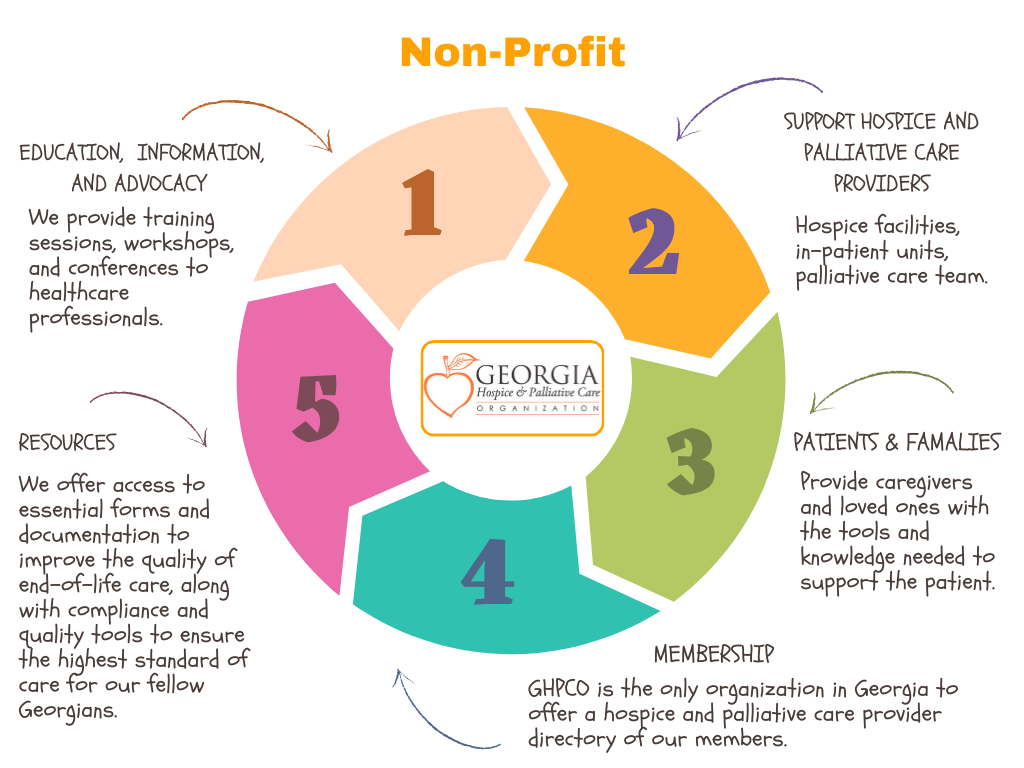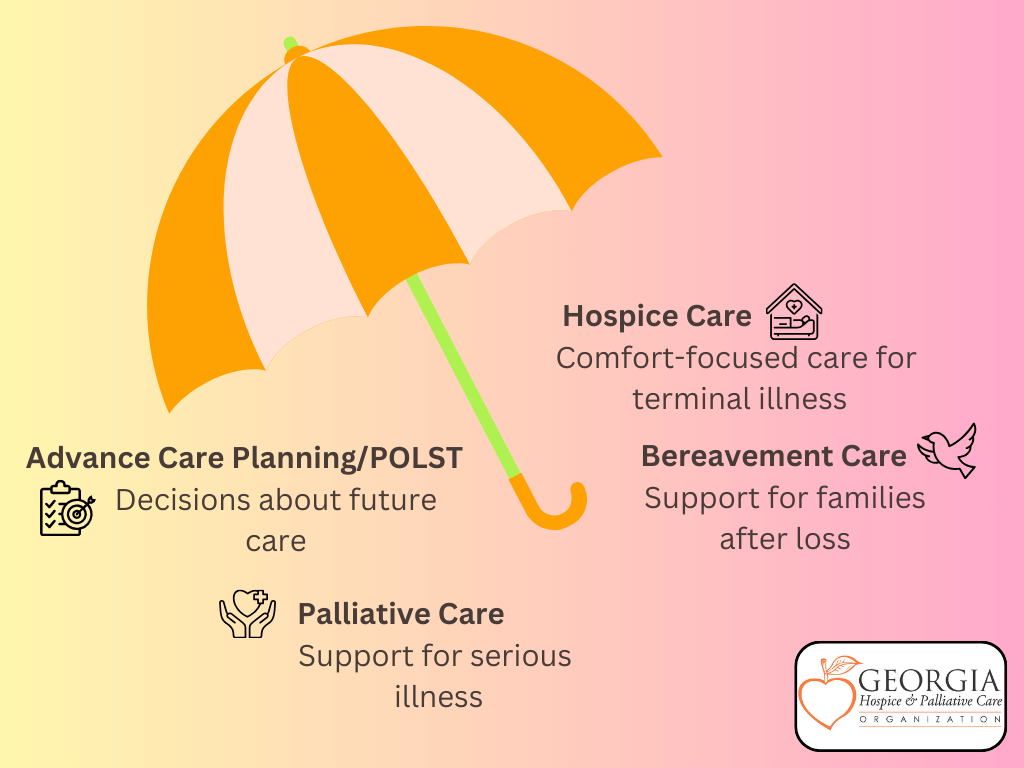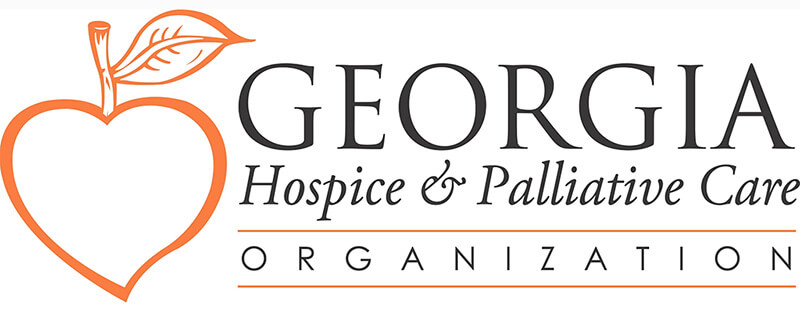Who Is GHPCO?

We are a nonprofit dedicated to supporting hospice and palliative care providers, patients, and families across Georgia. Our mission is to enhance end-of-life care through education, advocacy, and resources. We offer training for healthcare professionals and guidance for families navigating care decisions. Committed to compassionate care, we strive to integrate expert medical support, pain management, and emotional and spiritual well-being for Georgians during end-of-life transitions.
What is Hospice, Palliative, and End of Life Care?
Hospice, palliative, and end-of-life care focus on providing compassionate, comprehensive support for those nearing the end of life. They prioritize effective pain and symptom management, addressing physical, emotional, and spiritual needs, and ensuring a dignified, comfortable experience.

End-of-life care is an umbrella term that includes four key elements:
Advance Care Planning (decisions about future care),
Palliative Care (support for serious illness),
Hospice Care (comfort-focused care for terminal illness),
Bereavement Care (support for families after loss).
Together, these services aim to respect the individual’s needs and support families during and after the process.
What is Advance Care Planning?
Palliative care applies the principles of hospice care to individuals earlier in their illness, addressing needs, symptoms, and treatment options in alignment with their values. It can but does not always transition into hospice care as the illness progresses.
Palliative care is not tied to specific locations and is accessible to people of all ages with serious illnesses, focusing on how illness impacts all aspects of a person’s life.
What defines End of Life Care?
End-of-life care is an overarching concept that includes advance care planning, palliative care, hospice care, and bereavement care, all aimed at providing dignity, comfort, and comprehensive support for those nearing the end of life.
Advance care planning is a vital process for all adults, involving exploration of care options, discussions with loved ones, and documenting preferences, particularly important for the "sandwich generation" (born 1950-1975).
What is Palliative Care?
Palliative care applies the principles of hospice care to individuals earlier in their illness, addressing needs, symptoms, and treatment options in alignment with their values. It can but does not always transition into hospice care as the illness progresses.
Palliative care is not tied to specific locations and is accessible to people of all ages with serious illnesses, focusing on how illness impacts all aspects of a person’s life.
What is Hospice Care?
Hospice care involves a team approach, with a family member often serving as the primary caregiver and helping with decision-making. Hospice staff visit regularly to assess and support the patient, and they are available 24/7. The hospice team creates a personalized care plan for pain and symptom management, which includes the patient’s physician, a hospice physician, nurses, home health aides, social workers, clergy or counselors, trained volunteers, and, if needed, therapists (speech, physical, and occupational).
